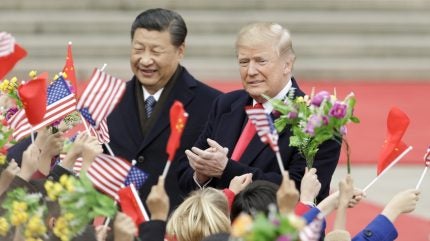
Beijing will “react tit-for-tat but passively” to the latest reignition of the US-China trade war as Washington appears set to ban Chinese autonomous vehicle software, an analyst has predicted.
In the coming weeks, the US Commerce Department will likely propose banning Chinese software in autonomous and connected vehicles, Reuters reported.
Beijing’s attention on US protectionism has been piqued in recent weeks by the presidential election campaign, during which former President Donald Trump has promised a 60% blanket tariff against Chinese imports if re-elected.
It may add impetus to Beijing’s desire to “shift the [Chinese] economy from heavily export and investment-driven to a mix of higher added value industrialisation and consumer-driven model”, according to Minxiong Liao, economist and APAC director at TS Lombard.
However, “the reality is that an even more deficient domestic demand and an overcapacity in certain industries may lead to an export-reliant Chinese economy again”, Liao told Investment Monitor.
China desires stability in the international economic system, aligning with a ‘stay-and-maintain’ stance towards the US and Western powers until provoked. When President Biden imposed tariffs on $18bn of Chinese imports in May, Beijing’s response involved more bark than bite.
Speaking ahead of research firm TS Lombard’s Global Economic Changes and Challenges: What China is Thinking? webinar, Liao summarised this as Beijing tending to “react tit-for-tat but passively whenever the US deviates from the path – in a trade war for example”.
Attention in Beijing now focuses on the US elections and which leader Chinese Premier Xi Jinping will be dealing with come November.
Many in China’s political brass see it as more important to prepare early for the disruption of another Trump administration than the lesser-known Beijing playbook of all-but-certain Democrat candidate Vice President Kamala Harris.



